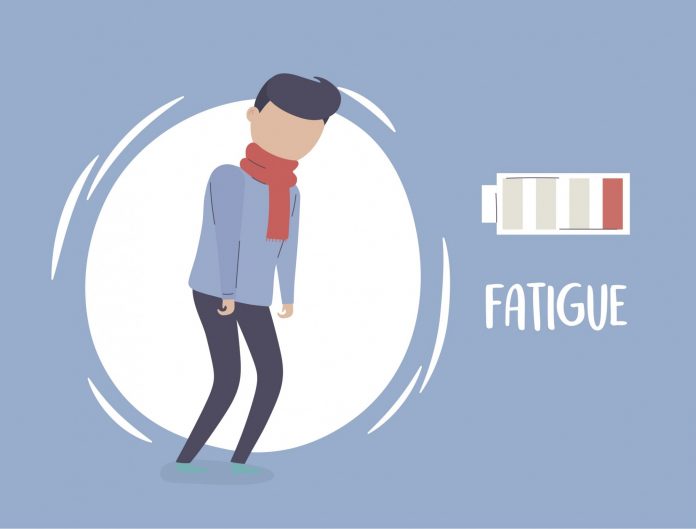As we make our way through another cold, wet and dreary winter, the extra strain placed on community pharmacies from the cold and flu season (and yes, layered on top of that the ongoing Covid-19 pandemic), it’s no wonder many are starting to feel fatigued and run down.
What’s more, a new study by Monash University reveals that those who’ve had Covid may still suffer from persistent symptoms such as loss of strength and tiredness.
While everyone experiences occasional – and generally harmless – bouts of tiredness, regular moderate-to-severe fatigue should be addressed with a lifestyle or medical intervention.
If someone is complaining of constant mild fatigue, this could be a sign that something is up – it could be a symptom of an underlying health condition, including anaemia, an underactive thyroid, coeliac disease or diabetes to name a few.
To help combat mild fatigue and to boost energy levels, Dr Andrew Thompson, Medical Director at InstantScripts provides six tips on how to do so.
6 tips to combat fatigue
- Check your medications
“If you are experiencing consistent tiredness, medication could be the culprit. Examples of medications that could induce fatigue and sluggishness are antihistamines (found in sleep aids and allergy medication); antiemetics (to treat nausea); anti-psychotics, antidepressants and anticonvulsants (which treat some mental illnesses and seizures), high blood pressure medication, sedatives such as benzodiazepines, and some prescription pain medications.
“I recommend speaking with your doctor to discuss whether any medicines you are taking may be the cause of your fatigue. Resolving it could require a dosage adjustment or a switch to alternative medicine.”
- Assess your mental health
“Fatigue can also point to an underlying psychological, rather than physical, condition. Constant tiredness may be related to mental burnout, stressful work environments, work shifts that conflict with the body’s internal clock that manages the body’s sleep-wake pattern, and mental health illnesses.
“Many sufferers of mental health illnesses, such as depression and anxiety, struggle with fatigue and low energy due to their condition. In fact, psychological factors are present in at least 50% of fatigue cases in Australia.
“If you are struggling with low mood and energy, I advise consulting a GP or specialist, such as a psychologist, to help resolve any psychological factors that may be contributing to or causing your fatigue.”
- Maintain an exercise routine
“While exercise is an important factor in maintaining good physical health, it can also stabilise your mood and reduce cortisol levels, also known as the stress hormone.
“By maintaining a consistent exercise routine of at least 30 minutes of physical activity each day, you can help improve your mental and physical health, which in combination, help promote better quality sleep and help manage or even combat fatigue.
“However, exercise should be avoided at least two hours before bedtime as it releases endorphins, causing alertness.”
- Consider your diet
“The foods you eat can play a major role in your energy levels. Maintain a well-balanced diet rich in whole foods. Carbohydrates provide glucose, which the body converts into energy, and protein assists with brain function and alertness.
“Consider opting for foods with a low glycaemic index, as your body absorbs their sugars slowly, preventing the sudden slumps in energy that can occur after consuming refined starches and sugars. Low GI foods usually consist of proteins and healthy fats, including high-fibre vegetables, nuts and olive oil.”
- Watch your caffeine intake
“A cup of coffee or an energy drink may provide a quick fix to low energy levels, but drinking too much can impact your sleep or cause you to develop a higher tolerance to caffeine. ‘Caffeine tolerance’ reduces the drug’s stimulant effects and may cause the body to experience withdrawal symptoms, including irritability, headaches, agitation and fatigue.
“A gradual tapering of the amount of caffeine you consume will reduce your body’s tolerance and prevent the onset of withdrawal symptoms. Reducing or eliminating caffeine from your diet and increasing water consumption, along with increasing your intake of fruits and vegetables, will help you maintain sufficient energy levels throughout the day.”
- Avoid alcohol
“Alcohol can contribute to fatigue. Alcohol has a sedative quality that can increase tiredness, often resulting in night-time waking due to poor quality sleep. It can also increase the need to urinate at night, causing sleep disruption. In fact, 10% of insomnia cases can be attributed to alcohol consumption. Alcohol is also a known diuretic: it increases dehydration, which is a known energy thief.”
In addition to these tips, Dr Thompson recommends that “if you are experiencing fatigue, it is important to consult your primary care provider or access a pathology test … to assess your iron, electrolyte, glucose, and vitamin B12 levels, which can help determine a physical cause”.








